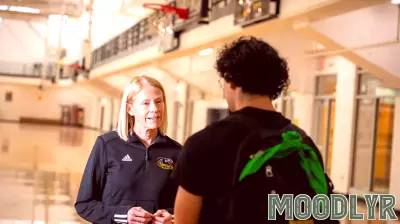A New Psychological Approach to Minimizing Relationship Conflicts
February 22, 2025 - 20:32

There aren’t many “quick fixes” when it comes to relationships. However, recent psychological research offers us a new one for reducing conflict. Experts suggest that a simple tool can significantly improve communication and understanding between partners. This tool revolves around the practice of active listening, which encourages individuals to fully engage with what their partner is saying without interrupting or formulating a response while the other is speaking.
Active listening involves several key components: maintaining eye contact, nodding to show understanding, and summarizing what the partner has said to ensure clarity. By genuinely validating each other’s feelings and perspectives, couples can create a safe space for open dialogue. This approach not only helps in diffusing tension but also fosters a deeper emotional connection.
Moreover, incorporating this technique into daily interactions can lead to long-term improvements in relationship dynamics. By embracing active listening, couples may find themselves navigating conflicts with greater ease and empathy.
MORE NEWS

February 21, 2026 - 02:30
Home Really Is Where the Heart IsThe age-old saying `home is where the heart is` is more than just a sentimental phrase; it is a neurological reality. New research suggests that the profound feeling of home is an idea we...

February 20, 2026 - 05:37
Racist Attitudes Linked To Future Psychological Distress – But Could Both Be Fueled By Something Else?A new research study is challenging the straightforward assumption that holding racist views directly causes future mental health problems. While confirming a link between prejudiced attitudes and...

February 19, 2026 - 04:05
UWM Professor Uses Sport Psychology Research to Solve Real-World ProblemsProfessor Barbara Meyer possesses a uniquely analytical lens that she applies to nearly every situation. Whether she`s guiding Olympic athletes, consulting with a university soccer team, or simply...

February 18, 2026 - 03:25
Why couldn't Ilia Malinin handle the pressure? Sports psychologists offer their thoughtsThe recent performances of top athletes have reignited a crucial conversation within the world of elite sports: the immense psychological burden of competition. While the spotlight often falls on a...